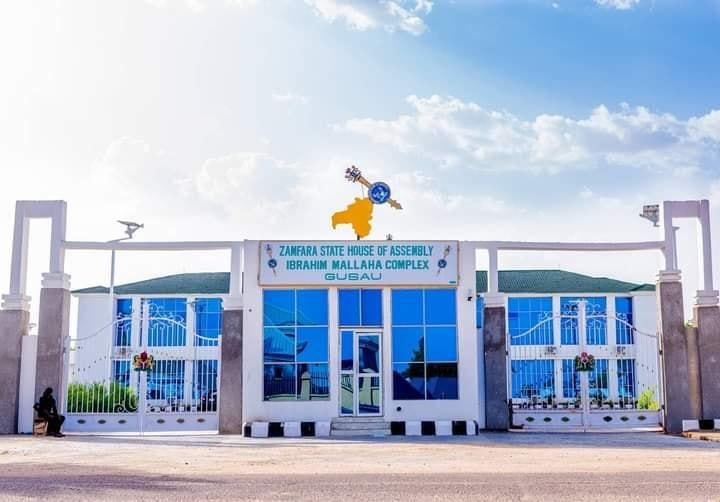The Zamfara State House of Assembly has become embroiled in a bitter internal conflict following the controversial removal of the Minority Leader, Aliyu Ango-Kagara. The Speaker of the House, Bilyaminu Moriki, justified the dismissal citing Ango-Kagara’s alleged chronic absenteeism, claiming he attended a mere 21 out of 180 plenary sessions. This explanation, however, has been vehemently rejected by ten members of the Assembly who denounce the removal as an illegal and undemocratic maneuver designed to stifle dissent and consolidate power within the hands of the executive branch. This division within the Assembly threatens the legitimacy of legislative processes and casts a shadow over the future of governance in Zamfara State.
The dissenting lawmakers, representing a significant minority within the 24-member Assembly, have accused the Speaker and his supporters of manipulating the legislative process for personal gain and to serve the interests of the state’s executive branch. They argue that the removal of Ango-Kagara was orchestrated by a small faction within the Assembly seeking to suppress any opposition to their agenda. Furthermore, they allege that their own subsequent suspensions from the Assembly were retaliatory measures for their refusal to comply with this undemocratic power grab. These actions, they claim, have effectively crippled the legislative body’s ability to function as an independent check on executive power.
The core of the dispute centers on the claim that without a legitimate Minority Leader, the Assembly is vulnerable to undue influence from the executive branch. The dissenting lawmakers argue that this imbalance of power undermines the principle of separation of powers and threatens the democratic foundations of the state. They portray the current Assembly leadership as acting as a rubber stamp for the executive, thereby jeopardizing the integrity of the legislative process and the interests of the people of Zamfara State. This erosion of legislative independence, they warn, could lead to unchecked executive authority and a decline in accountability.
The dissenting lawmakers have not limited their protest to mere pronouncements; they have escalated the matter by formally petitioning the National Assembly for intervention. Their plea underscores the gravity of the situation and their belief that the internal mechanisms for conflict resolution within the Zamfara State Assembly have been compromised. They contend that the actions taken by the Speaker and his supporting faction have not only violated internal rules and procedures but also undermined the fundamental principles of democratic governance. Their appeal to a higher legislative authority signals a deep concern about the future of the Assembly and the potential for lasting damage to the state’s political landscape.
Adding weight to their argument, the dissenting lawmakers emphasize the procedural irregularities surrounding the removal of Ango-Kagara and their subsequent suspensions. They highlight the fact that with ten members effectively sidelined, including the ousted Minority Leader, the remaining members do not constitute the two-thirds majority required to pass legislation. Consequently, they argue that any decisions made under these circumstances, including the passage of the 2025 Appropriation Bill and amendments to state laws, are inherently invalid and should be nullified. This challenge to the legitimacy of recent legislative actions further complicates the political crisis in Zamfara State.
The unfolding events in the Zamfara State Assembly paint a picture of a deeply fractured legislative body, grappling with accusations of power abuse and a breakdown of democratic principles. The accusations leveled by the dissenting lawmakers raise serious questions about the integrity of governance within the state. Their call for intervention from the National Assembly represents a desperate attempt to restore order and prevent further erosion of democratic processes. The outcome of this dispute will have far-reaching implications for the political landscape of Zamfara State and could serve as a crucial test of the resilience of democratic institutions in Nigeria. The future of Zamfara State hinges on a swift and impartial resolution to this crisis, upholding the rule of law and safeguarding the principles of representative democracy.














